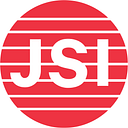Women Supporting Women’s Access to Primary Health with Expanded Digitization and Data Use
“I felt as though I would start every client visit asking the same question. And clients had to repeat their information, making up for the misplaced data,” says Sead Ismael, a health extension worker at Bishanbe Health Post in Biyo Awale, Ethiopia.
Health extension workers are an all-female cadre that ensures the health and safety of people — particularly women — in communities. In her role, Sead checks on pregnant and postpartum women and newborns and children. She counsels, treats, and records each patient’s health information, and offers follow-up and referral visits for those who with more complex health issues.
The paper-based system that Ismail and other health workers across the country relied upon for years accumulated a lot of content that was hard to organize and recall, and few health extension workers could use data from previous client consultations at subsequent encounters. Some data were lost completely, limiting the ability of the National Health Extension Program, which oversees community-based primary health care, to provide community- and patient-centric care.
Through JSI’s USAID-funded Digital Health Activity (DHA) and the Children’s Investment Fund Foundation-supported Ethiopia eCHIS Scale-up for HEP Improvement Project, Ismael and many health extension workers across the country received tablets and phased trainings on their use. JSI also supports electronic community health information (eCHIS) scale-up by developing components of the applications’ modules and providing infrastructure and technical support.
It has been more than a year since Ismael started using eCHIS. “When we have a new client, we load information on the tablet. When we return to the office, there is no need to file paperwork. We just sync our collected data in tablets to the server. It is also easy to report aggregated data. And when we go back to that same client, we can easily retrieve their history, onsite, and provide informed health counseling,” explains Ismael.
The eCHIS has strengthened data quality and use in health program decision-making. It has, notably, facilitated technical exchanges across sites and districts, allowing users to adapt each other’s solutions to common challenges. “We now have correct household information in each kebele. eCHIS alleviates reporting burdens on health extension workers while ensuring no information is overlooked during client counseling and registration processes,” says Kidist Tekle Giyorgis, the health management information case team coordinator in Dire Dawa Administration Health Bureau.
And when support from DHA ends, “we will continue using eCHIS in our health post. I cannot imagine going back to that old system,” says Ismael. “We are simply better serving women and children. ”
Find out more about JSI’s digital health work here and sign up for newsletters here.
By Alemnesh Gudeta
